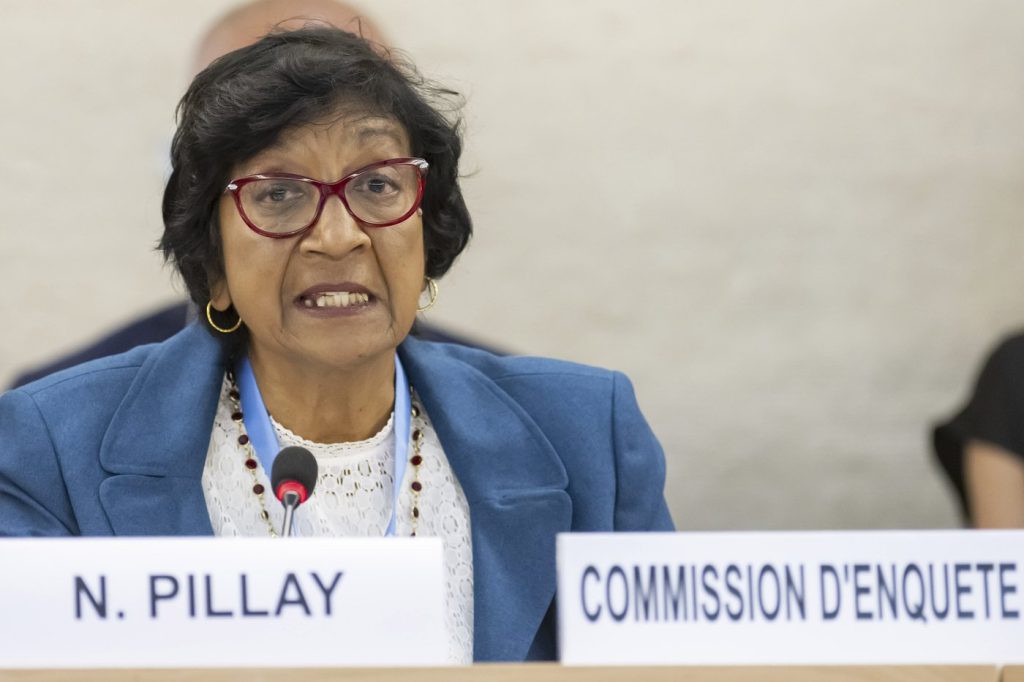GENEVA (AP) - A team of three independent experts working for the United Nations' primary human rights body, focused on Israel and Palestinian territories, has announced their resignations. Citing personal reasons and the need for change, the experts' decision comes amid ongoing violence in Palestinian areas and a persistent Israeli military campaign against Hamas and other militants following the attacks on October 7, 2023.
The resignations were disclosed on Monday by the Human Rights Council, which established the Commission of Inquiry on the Occupied Palestinian Territory and Israel. This commission has been subject to frequent criticism from the Israeli government, which has denied the experts' requests to travel to the region and engage with the commission's work.
Navi Pillay, a former UN human rights chief and the commission's leader for the past four years, informed the council president in a letter that she would be stepping down effective November 3, 2023. Pillay cited "age, medical issues, and the weight of several other commitments" as reasons for her decision. Chris Sidoti, another member of the commission, echoed Pillay's sentiments, stating that her retirement presented "an appropriate time to re-constitute the commission." Sidoti has also decided to resign on the same date to facilitate this process.
The third team member, Miloon Kothari, announced his resignation effective October 31, 2023, but did not provide specific reasons in his correspondence to the council president. Collectively, the independent experts, while lacking any enforcement power over countries, aim to highlight human rights abuses in the region and gather information about alleged violators, potentially to be used by the International Criminal Court (ICC) or other international justice bodies.
The letters of resignation were sent to the council president last week but only made public on Monday. In related developments, the U.S. government recently imposed sanctions on Francesca Albanese, another independent expert mandated by the council who has concentrated on Israel and the Palestinians. Albanese has previously accused Israel of committing genocide against Palestinians, a characterization firmly rejected by the Israeli government. In an interview, Albanese expressed her shock at the U.S. sanctions but has not resigned from her position.
This situation underscores the complexities and tensions surrounding international human rights investigations and the ongoing conflict in the region. The evolving dynamics reveal a challenging landscape for advocates of human rights and international justice, amidst growing political pressures and divergent narratives involving the Israeli-Palestinian conflict.











